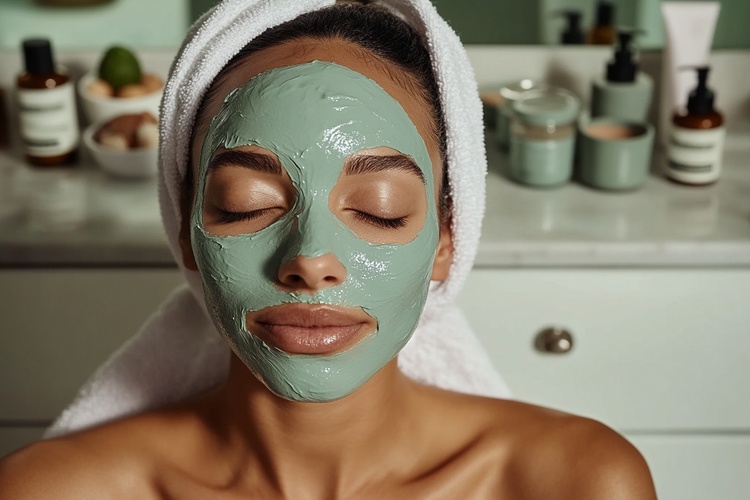The Transformative Power of Skincare Rituals
Skincare rituals have become an integral part of modern beauty routines, transcending mere vanity to encompass self-care, wellness, and even cultural identity. These daily or weekly practices, often rooted in ancient traditions, have gained newfound popularity in recent years. The rise of social media and beauty influencers has contributed to a growing awareness of skincare techniques and products, leading to a global skincare market valued at billions of dollars. However, the appeal of skincare rituals goes beyond product consumption, tapping into deeper human needs for ritual, mindfulness, and connection to one's body and cultural heritage.

These historical practices laid the foundation for many modern skincare rituals. The Korean 10-step skincare routine, for example, draws on traditional Korean beauty wisdom while incorporating cutting-edge ingredients and technologies. Similarly, the popularity of facial massage techniques and tools like gua sha and jade rollers can be traced back to ancient Chinese medicine and beauty practices.
The Science Behind Skincare Rituals
While many skincare rituals have their roots in tradition, modern science has begun to validate their effectiveness. Research has shown that consistent skincare routines can improve skin health, reduce signs of aging, and even boost overall well-being. The act of massaging the face, for instance, has been found to improve circulation, promote lymphatic drainage, and reduce muscle tension.
Moreover, the psychological benefits of skincare rituals are increasingly recognized. The repetitive, mindful nature of these practices can serve as a form of meditation, reducing stress and promoting relaxation. This mind-body connection underscores the holistic nature of skincare rituals, which often blur the lines between beauty, health, and wellness.
Cultural Variations in Skincare Rituals
Skincare rituals vary widely across cultures, reflecting different beauty ideals, climates, and available resources. In Japan, the concept of “lotion masks” involves patting layers of hydrating toner into the skin, a practice that stems from the country’s humid climate and emphasis on plump, dewy skin. In India, the use of natural ingredients like turmeric and neem in skincare is deeply rooted in Ayurvedic traditions.
Western skincare rituals have traditionally focused on cleansing and moisturizing, with a recent shift towards more elaborate routines inspired by Asian beauty practices. This cross-cultural exchange has led to a global skincare market that offers diverse products and rituals catering to various skin types, concerns, and cultural preferences.
The Role of Technology in Modern Skincare Rituals
Advancements in technology have revolutionized skincare rituals, introducing new tools and techniques that enhance traditional practices. LED light therapy masks, microcurrent devices, and high-tech cleansing brushes have become popular additions to home skincare routines. These devices promise professional-grade results, blurring the lines between at-home care and in-clinic treatments.
Additionally, artificial intelligence and machine learning are being applied to skincare, with apps and devices that can analyze skin conditions and recommend personalized routines. This intersection of technology and beauty has opened up new possibilities for tailored skincare rituals that adapt to individual needs and environmental factors.
The Social Aspect of Skincare Rituals
Skincare rituals have taken on a social dimension, particularly in the age of social media. “Skincare selfies” and routine-sharing videos have become popular content on platforms like Instagram and TikTok. This trend has created a sense of community among skincare enthusiasts, fostering discussions about products, techniques, and personal experiences.
The social nature of skincare rituals extends beyond the digital realm. “Skincare parties” and group masking sessions have emerged as social activities, particularly among younger generations. These gatherings transform skincare from a solitary practice into a shared experience, combining self-care with social bonding.
Sustainability and Ethics in Skincare Rituals
As awareness of environmental issues grows, sustainability has become a key consideration in skincare rituals. Consumers are increasingly seeking eco-friendly products and practices, leading to innovations in packaging, ingredient sourcing, and product formulations. Waterless beauty products, refillable containers, and zero-waste options are gaining popularity, reflecting a shift towards more sustainable skincare rituals.
Ethical considerations also play a role in shaping modern skincare rituals. Cruelty-free and vegan products have become mainstream, and there’s growing interest in fair trade and ethically sourced ingredients. These concerns reflect a broader trend of conscious consumerism, where beauty rituals are seen as an extension of personal values and ethics.
The Future of Skincare Rituals
As skincare rituals continue to evolve, several trends are likely to shape their future. Personalization is expected to become increasingly sophisticated, with AI-driven recommendations and custom-formulated products tailored to individual skin needs and lifestyles. The integration of wellness practices, such as mindfulness and stress reduction, into skincare routines is likely to grow, reflecting a holistic approach to beauty and health.
Innovation in ingredients and delivery systems will continue, with a focus on sustainability and efficacy. Biotech-derived ingredients, microbiome-friendly formulations, and advanced encapsulation technologies are areas of active research and development in the skincare industry.
Furthermore, the cultural exchange of beauty practices is likely to accelerate, leading to a more diverse and inclusive approach to skincare rituals. This global cross-pollination of ideas and traditions promises to enrich the world of skincare, offering individuals more choices and ways to connect with their bodies, cultures, and the broader global community through the transformative power of skincare rituals.




